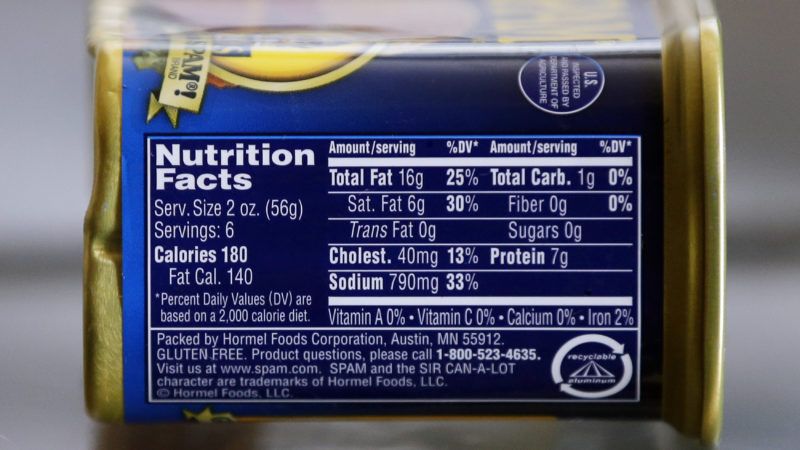The FDA Deserves Credit for Easing Food Ingredient Labeling Rules in Response to COVID-19
The flexibility will allow food makers to substitute small amounts of food ingredients temporarily without necessitating the creation or use of a new food label.

Earlier this week, the Food and Drug Administration (FDA) announced it was relaxing food ingredient labeling rules due to ingredient shortages associated with the COVID-19 pandemic. The move is intended to benefit food manufacturers, grocers, and consumers. I think it will do just that.
Practically, the flexibility around "minor formulation changes" will allow food makers to substitute small amounts of food ingredients temporarily without necessitating the creation or use of a new food label. That will get more food in front of consumers.
Under existing FDA rules, all food ingredients must generally be listed on every food label "in descending order of predominance"—based on the weight of each ingredient that appears in the given food. For example, in a hypothetical ingredient list on a can of tuna fish that features "Tuna, Water, and Salt," the quantity of tuna in the can weighs the most; the salt weighs the least.
American food manufacturers, just like the rest of us, have been coping with ingredient shortages as supply chains are stretched to their breaking point. Flour shortages, for example, have become increasingly common in recent weeks and months. That's exactly the sort of issue this regulatory flexibility is intended to address.
"Given significant supply chain disruptions for [flour] during this time, we do not intend to object to the use of products labeled with 'bleached' flour ingredients that substitute for the ingredient 'unbleached flour' without making a corresponding label change while there continues to be 'bleached' flour shortages as a result of the COVID-19 pandemic," the FDA explains here, in an announcement explaining the regulatory flexibility.
While the new FDA guidance allows food makers to substitute food ingredients, the agency's flexibility isn't without some limitations. For example, it doesn't extend to known allergens, meaning a food maker may not swap out an existing ingredient for nuts, shellfish, or another allergen the agency requires food makers to disclose on the food label. It also allows substitutions only of ingredients that comprise up to two percent of the food's total weight.
The FDA gets a lot wrong, but the agency's move this week is just the latest example of welcome and much-needed regulatory flexibility in the face of the pandemic.
In an April column, for example, I complimented the FDA, U.S. Department of Agriculture, and state and local regulators for "loosening rules to ensure the nation's food system—and the people and businesses that drive that system—continues to be able to provide American consumers with adequate food." In that piece, I noted both the FDA and USDA have temporarily relaxed food-labeling rules to allow food sellers to sell foods that are not labeled for individual sale; the FDA had backed off on its food-safety inspections; and some state and local governments had loosened rules on restaurants and bars that want to sell alcohol for takeout.
The FDA's move this week does face some mild resistance. According to a writer for The Counter (to which I also contribute), "some worry" the changes could become permanent.
I don't necessarily worry about that. I support the FDA's move this week. And I'd love to see many of the aforementioned regulatory rollbacks made permanent. But it's also true that mandatory food-ingredient labels serve a vital role in food safety and consumer choice.
In a 2013 column detailing the shortcomings of many federal food-labeling schemes, for example, I also argued that mandatory, "accurate ingredient and allergen labeling" should appear on all packaged foods. Why? Because the FDA's proper role is limited to combating the adulteration and misbranding of food that's in interstate or foreign commerce. Proper ingredient labeling is a key part of fulfilling that mission. That's why I would oppose making the food-ingredient flexibility permanent.
For now? Fret not. No one is going to be harmed by the FDA's move this week, while millions will benefit from this temporary change. Kudos to the FDA.
